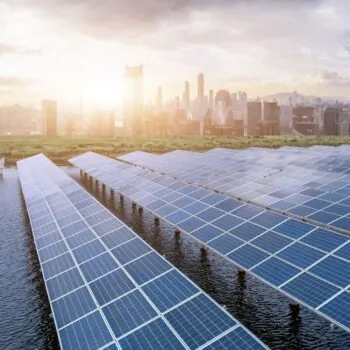During summer 2019, Portugal and Spain experienced an unprecedented period of low electricity production from coal-fired power plants. Portugal’s electricity system ran coal-free for 19 days, while Spain’s coal-fired electricity generation met less than 1% of the country’s consumption over 10 consecutive days.
UN Secretary-General Antonio Guterres has called on governments to curtail coal power generation in response to the climate crisis. The substantial and sustained reduction in coal use in his own country Portugal is further evidence that this is a realistic request also achievable by others.
In Spain, the reduced profitability for coal power generation led utility company Endesa to announce in September that it will retire two additional power plants in 2020, which had previously been intended for life extensions. In total 83% of the existing coal capacity in Spain is now set to be retired in 2020.
While coal is heading towards the exit, Portugal and Spain enter decisive weeks in their national politics. This paper offers analysis on the recent period of low coal use and presents policy recommendations that can help complete the coal-to-clean transition.
We find that the two Iberian electricity systems are now confronted with an extended period of very low use of coal for electricity generation. This experience demonstrates that a coal-free electricity system in Portugal and Spain is now closer than ever, with 2023 and 2025 timeframes a realistic prospect for explicit government policy commitments to phase out coal generation.
The energy transition is an important topic of the political debate in Portugal and Spain, with both countries entering important political moments. Coalition negotiations are now underway to form a Government in Portugal following the election on 6 October. Similarly, Spain heads to elections again on November 10. The successful low use of coal throughout 2019 in both electricity systems should encourage political leaders in both countries to grasp the energy transition as part of an agenda for economic renewal and progress.
We identify here four recommendations to successfully deliver this agenda in the new political cycle:
- Introduce an aligned CO2 floor price for the electricity sector in Portugal and Spain. The unpredictable evolution of CO2 prices in the ETS markets leads to an uncertain timeline for the closure of coal power plants and negatively impacts the planning of new investments in electricity grid flexibility services, reducing the economic and innovation benefits of the clean economy transition. Portugal has sought to address this through the introduction of a CO2 tax in addition to the ETS price, however this creates a price difference for the emission of CO2 inside the Iberian energy market, potentially affecting the emissions reduction pathway in Spain. Both Spain and Portugal supported the implementation of a minimum CO2 price in the Lisbon Declaration of July 2018. We recommend a coordinated approach between Spain and Portugal, and preferably also with France, on the implementation of an aligned CO2 minimum price at regional level, ideally also addressing imports of coal-fired electricity from Morocco.
- Prioritize innovation and investments to address a coal-free electricity system. The phase-out of coal power plants can be an opportunity to attract clean energy investment and develop innovation-based grid flexibility services. This opportunity can be addressed by prioritizing investment in renewables and grids needed for a coal-free electricity system, following the recommendations of security of supply and grid resilience assessments. Policy makers can also grasp the coal-to-clean transition as an opportunity to incentivize the development of innovation-based flexibility services, like Demand Side Response (DSR) or vehicle-to-grid, developing high-value added sectors and setting a new step into the digitisation of grids operation. The UK National Grid has been very successful in combining the UK coal phase-out policy with this new generation of grid flexibility services.
- Active engagement with local communities and businesses on a social transition plan. An active engagement with unions and local businesses will be required to safeguard the interests of the workers affected by the retirement of coal power plants. The coal-to-clean economy transition represents new job opportunities for workers, who can be reskilled to new positions. Also, relocation opportunities in the same company or early retirements schemes can be part of the solution, all assisted by clarity on timeframes.
- Set up regular high-level talks between the Governments of Portugal and Spain to coordinate the energy transition at regional level. Portugal and Spain are facing a similar set of developments, such as the prospects of an accelerated coal phase out and high interest in renewable energy capacity development. These similar challenges, driven by economic factors, require a coordinated approach between Portugal and Spain that can be focused on the following agenda topics:
- Capacity development of coal and renewables in both electricity systems
- Policy mechanisms to be implemented (e.g. aligned minimum CO2 price for the two countries and electricity sector taxation policy)
- Cooperation on security of supply and Iberian energy market development
- Development of interconnections with France
- Solution to the challenge of coal-fired electricity imports from Morocco.
This cooperation would be in line with the recommendations of the European Commission regarding the draft National Energy and Climate Plans submitted by Portugal and Spain. A similar regional coordination was recently initiated by Germany and The Netherlands at very high level of Government – an approach that has the advantage of providing greater predictability to investors.
Overall, we believe that policy makers in both Spain and Portugal can have confidence in pursuing an accelerated coal phase out across both countries. The experience of 2019 has shown that the two Iberian electricity markets have operated with historically low levels of generation from coal yet delivered secure supplies of electricity, at lower prices for consumers, during a period low generation from hydropower. This experience can provide an impulse for further investment in clean energy and deeper cooperation between policy makers from both countries.


